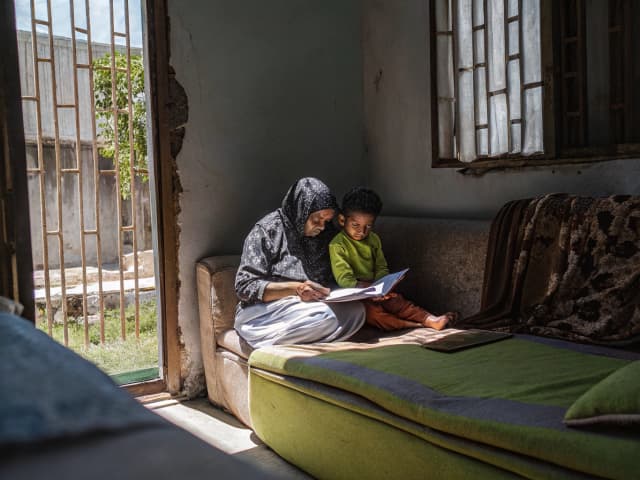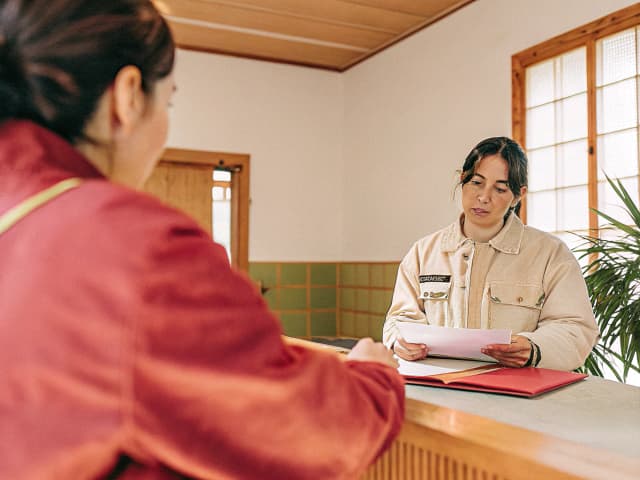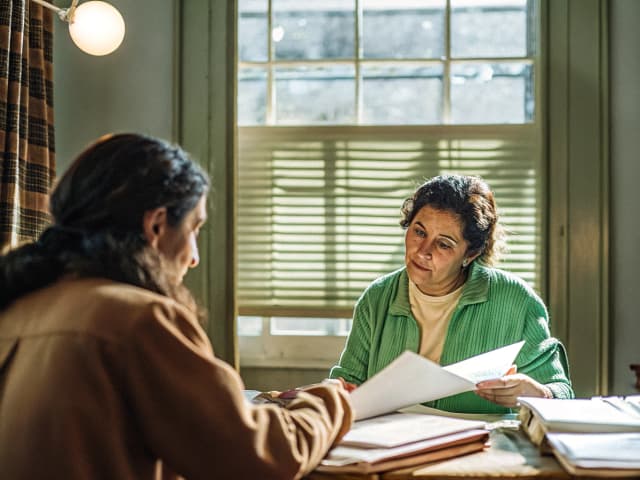Social Services

Foster care supplement.
Requires inflation adjustment to the $489 monthly supplement starting July 1, 2026. Establishes state-mandated local program costs funded only if annual funds are provided. Directs the department to adopt regulations setting uniform rates by facility category. Preserves existing supplements and requires CalSAWS updates for expectant-parent payments.
Foster care supplement.

Requires inflation adjustment to the $489 monthly supplement starting July 1, 2026. Establishes state-mandated local program costs funded only if annual funds are provided. Directs the department to adopt regulations setting uniform rates by facility category. Preserves existing supplements and requires CalSAWS updates for expectant-parent payments.

Department of Justice: child abuse reporting.
Requires CASA programs to submit state and federal background checks for all candidates. Establishes ongoing CAC I monitoring and CASA notifications. Requires semiannual verifications and termination; reinforces one CASA program per county. Authorizes fees for federal checks and ongoing notifications; state checks remain free.
Department of Justice: child abuse reporting.

Requires CASA programs to submit state and federal background checks for all candidates. Establishes ongoing CAC I monitoring and CASA notifications. Requires semiannual verifications and termination; reinforces one CASA program per county. Authorizes fees for federal checks and ongoing notifications; state checks remain free.

CalWORKs: Home Visiting Program.
Duration is tied to the home visiting model, not a fixed term. Allows post-exit services up to 12 months or until the model completes, with written opt-in. Funding remains voluntary; counties may cap enrollment. Expansion of enrollment requires department approval.
CalWORKs: Home Visiting Program.

Duration is tied to the home visiting model, not a fixed term. Allows post-exit services up to 12 months or until the model completes, with written opt-in. Funding remains voluntary; counties may cap enrollment. Expansion of enrollment requires department approval.

Foster care: placement: family finding.
Establishes a data-driven push to place foster children with relatives. Requires counties to compare kin placement rates to statewide averages and ICWA benchmarks in 2027. If below average, consult the Center for Excellence to adopt kin-placement practices. Requires notifying identified adult relatives within 30 days of removal.
Foster care: placement: family finding.

Establishes a data-driven push to place foster children with relatives. Requires counties to compare kin placement rates to statewide averages and ICWA benchmarks in 2027. If below average, consult the Center for Excellence to adopt kin-placement practices. Requires notifying identified adult relatives within 30 days of removal.

CalWORKs: family violence option and gender-based violence information.
Expands waivers for abuse victims to protect safety and escape. Requires uniform statewide information and a standardized waiver form. Establishes protocols by Jan 1, 2027 and operability by 2028 or SWWS readiness. Requires annual reporting on abuse-identified CalWORKs recipients.
CalWORKs: family violence option and gender-based violence information.

Expands waivers for abuse victims to protect safety and escape. Requires uniform statewide information and a standardized waiver form. Establishes protocols by Jan 1, 2027 and operability by 2028 or SWWS readiness. Requires annual reporting on abuse-identified CalWORKs recipients.

Foster care: placement transition planning.
Mandates a placement transition policy to support foster youth moves and reunification. Gives foster youth input in transition planning and sharing information. Creates a unified resource family approval system with state guidance and a year deadline.
Foster care: placement transition planning.

Mandates a placement transition policy to support foster youth moves and reunification. Gives foster youth input in transition planning and sharing information. Creates a unified resource family approval system with state guidance and a year deadline.

Meal program: senior citizens.
Mandates at least one meal daily, five days a week, in person or to-go for virtual congregate use. Removes RDAs requirement for additional meals beyond the minimum. Adds a path for home-delivered meals under federal Home Delivered Nutrition Services. Introduces virtual congregate setting concept without defined standards.
Meal program: senior citizens.

Mandates at least one meal daily, five days a week, in person or to-go for virtual congregate use. Removes RDAs requirement for additional meals beyond the minimum. Adds a path for home-delivered meals under federal Home Delivered Nutrition Services. Introduces virtual congregate setting concept without defined standards.

CalFresh: student eligibility.
Establishes a data-sharing framework to identify CalFresh-eligible students with FERPA protections. Requires separate opt-in consent to share contact data for CalFresh outreach. Repeals the old campus program approval path and adopts a statewide framework. Sets 2026 transition and 2030 reports, outreach starts 2027–28, privacy rules apply.
CalFresh: student eligibility.

Establishes a data-sharing framework to identify CalFresh-eligible students with FERPA protections. Requires separate opt-in consent to share contact data for CalFresh outreach. Repeals the old campus program approval path and adopts a statewide framework. Sets 2026 transition and 2030 reports, outreach starts 2027–28, privacy rules apply.

Child welfare services: domestic violence consultant pilot program.
Establishes a three-year county pilot with DV consultants to improve DV and child welfare outcomes. Requires the DV consultant be from a victim service organization and qualified counselor. Mandates a comprehensive evaluation due by October 31, 2031 with input from DSS and stakeholders. Sunsets the authority on January 1, 2032.
Child welfare services: domestic violence consultant pilot program.

Establishes a three-year county pilot with DV consultants to improve DV and child welfare outcomes. Requires the DV consultant be from a victim service organization and qualified counselor. Mandates a comprehensive evaluation due by October 31, 2031 with input from DSS and stakeholders. Sunsets the authority on January 1, 2032.

Childcare.
Shifts third-stage childcare administration from counties to contracted providers. Expands third-stage income eligibility toward 85% of the state median income. Extends family fee exemptions to 24 months and waives fees for CalWORKs recipients. Expands attendance rules to include medical and educational appointments and space-holding.
Childcare.

Shifts third-stage childcare administration from counties to contracted providers. Expands third-stage income eligibility toward 85% of the state median income. Extends family fee exemptions to 24 months and waives fees for CalWORKs recipients. Expands attendance rules to include medical and educational appointments and space-holding.

CalWORKs.
Expands CalWORKs by disregarding hours worked for unemployment if income limits are met. Allows aid during strikes and lockouts and includes striker's needs per federal law. Adds self-employment to welfare-to-work activities. Requires feasibility study by Jan 1, 2028 and plans with labor agreements by 2025.
CalWORKs.

Expands CalWORKs by disregarding hours worked for unemployment if income limits are met. Allows aid during strikes and lockouts and includes striker's needs per federal law. Adds self-employment to welfare-to-work activities. Requires feasibility study by Jan 1, 2028 and plans with labor agreements by 2025.

State Emergency Food Bank Reserve Program: diapers and wipes.
Expands SEFBRP to include diapers and wipes. Authorizes use of SEFBRP funds to purchase, distribute, and reimburse diapers and wipes. Defines eligible food banks as EFAP/CSFP participants and CA Feeding America members. Grants procurement exemptions and allows informal implementation, pending appropriation.
State Emergency Food Bank Reserve Program: diapers and wipes.

Expands SEFBRP to include diapers and wipes. Authorizes use of SEFBRP funds to purchase, distribute, and reimburse diapers and wipes. Defines eligible food banks as EFAP/CSFP participants and CA Feeding America members. Grants procurement exemptions and allows informal implementation, pending appropriation.

Nonminor dependents: tax guidance.
Establishes the FOSTER Act to guide nonminor dependents on tax filing. Requires guidance to counties and juvenile probation departments by July 30, 2026 with updates every two years. Requires annual mailings to nonminor dependents with eligibility, max credit, other credits, and VITA resources. Mandates the mailing window Nov 1 through Jan 31; local costs reimbursed only if funds provided.
Nonminor dependents: tax guidance.

Establishes the FOSTER Act to guide nonminor dependents on tax filing. Requires guidance to counties and juvenile probation departments by July 30, 2026 with updates every two years. Requires annual mailings to nonminor dependents with eligibility, max credit, other credits, and VITA resources. Mandates the mailing window Nov 1 through Jan 31; local costs reimbursed only if funds provided.

Older adults: emergency shelters.
Requires county welfare officials to form MOUs with AAA, ILC, or ADRC for shelter access. Adds definitions for emergency shelter and aligns with the State Emergency Plan. Establishes interagency collaboration requiring MOUs to ensure continuous services in evacuations. Provides no appropriation but allows reimbursement under the mandate framework.
Older adults: emergency shelters.

Requires county welfare officials to form MOUs with AAA, ILC, or ADRC for shelter access. Adds definitions for emergency shelter and aligns with the State Emergency Plan. Establishes interagency collaboration requiring MOUs to ensure continuous services in evacuations. Provides no appropriation but allows reimbursement under the mandate framework.

Adoption.
Adds requirement to include adoptive and existing parents on final adoption orders. Clarifies omitting an existing parent on the order does not terminate rights. Expands CA-born minor jurisdiction and endorses out-of-state home studies meeting CA standards. Establishes a 180-day investigation window for independent adoptions.
Adoption.

Adds requirement to include adoptive and existing parents on final adoption orders. Clarifies omitting an existing parent on the order does not terminate rights. Expands CA-born minor jurisdiction and endorses out-of-state home studies meeting CA standards. Establishes a 180-day investigation window for independent adoptions.

Public social services: support for older and aging immigrants.
Establishes a temporary panel to study support for aging immigrants regardless of status. Implementation is conditioned on appropriation and may use in-kind contributions. Requires the panel to deliver findings by July 1, 2028 and a joint report by December 31, 2028. Sunsets the program on January 1, 2029 unless extended.
Public social services: support for older and aging immigrants.

Establishes a temporary panel to study support for aging immigrants regardless of status. Implementation is conditioned on appropriation and may use in-kind contributions. Requires the panel to deliver findings by July 1, 2028 and a joint report by December 31, 2028. Sunsets the program on January 1, 2029 unless extended.

CalWORKs.
Updates CalWORKs to allow aid when a child lives with the parent without removing all children. Sets SAWS-driven operative date and bans retroactive payments. Allows reunification to satisfy welfare-to-work with a CalWORKs plan or CW services and CalWORKs plan. Exempts immunization requirements for reunification plans and notes local costs.
CalWORKs.

Updates CalWORKs to allow aid when a child lives with the parent without removing all children. Sets SAWS-driven operative date and bans retroactive payments. Allows reunification to satisfy welfare-to-work with a CalWORKs plan or CW services and CalWORKs plan. Exempts immunization requirements for reunification plans and notes local costs.

Office of the Developmental Services Ombudsperson.
Establishes an independent Developmental Services Ombudsperson with immediate effect. Repeals the old Self-Determination Ombudsperson and expands oversight to related programs. Requires appointment by the director after input from a consumer-advocacy committee for a four-year term. Enables complaints, investigations, public deidentified data, confidentiality, and a 2028 review.
Office of the Developmental Services Ombudsperson.

Establishes an independent Developmental Services Ombudsperson with immediate effect. Repeals the old Self-Determination Ombudsperson and expands oversight to related programs. Requires appointment by the director after input from a consumer-advocacy committee for a four-year term. Enables complaints, investigations, public deidentified data, confidentiality, and a 2028 review.

Child welfare services: prevention services: Indian tribes.
Authorizes tribal agreements to administer child welfare and prevention programs. Eliminates tribal cost share; the state bears nonfederal costs; counties cover costs when transfers. Provides funding for independent legal representation and requires a cost plan by 3/31/2026. Offers startup funding for three years, contingent on Budget Act.
Child welfare services: prevention services: Indian tribes.

Authorizes tribal agreements to administer child welfare and prevention programs. Eliminates tribal cost share; the state bears nonfederal costs; counties cover costs when transfers. Provides funding for independent legal representation and requires a cost plan by 3/31/2026. Offers startup funding for three years, contingent on Budget Act.

Juveniles: case file inspection.
Expands access to juvenile case files for county and city counsel and related agency attorneys. Authorizes county or city counsel for child welfare or probation to access files. Permits civil-proceeding attorneys to inspect and copy juvenile files. Creates a state-mandated local program with potential cost reimbursement.
Juveniles: case file inspection.

Expands access to juvenile case files for county and city counsel and related agency attorneys. Authorizes county or city counsel for child welfare or probation to access files. Permits civil-proceeding attorneys to inspect and copy juvenile files. Creates a state-mandated local program with potential cost reimbursement.

Nonminor dependents: county of residence.
Introduces a cross-county transfer mechanism for nonminor dependents based on best interests. Requires transfer order within 30 court days and new county gains jurisdiction within 10 days. Requires court to consider transfer during reviews and in reports for nonminors. Adds criteria for evaluating transfer: access to services, residency eligibility, connections.
Nonminor dependents: county of residence.

Introduces a cross-county transfer mechanism for nonminor dependents based on best interests. Requires transfer order within 30 court days and new county gains jurisdiction within 10 days. Requires court to consider transfer during reviews and in reports for nonminors. Adds criteria for evaluating transfer: access to services, residency eligibility, connections.

Public social services: tax-exempt nonprofit organizations.
Updates eligibility rules to treat state tax-exempt status as qualifying for grants. Establishes ESAVN to provide resettlement services for asylees and vulnerable noncitizens. Requires grant recipients to have three years' experience and malpractice insurance. Enacts as an urgency statute with immediate effect.
Public social services: tax-exempt nonprofit organizations.

Updates eligibility rules to treat state tax-exempt status as qualifying for grants. Establishes ESAVN to provide resettlement services for asylees and vulnerable noncitizens. Requires grant recipients to have three years' experience and malpractice insurance. Enacts as an urgency statute with immediate effect.

Public social services: eligibility: income exclusions.
Establishes income exclusions for pupil member pay in means-tested programs and scholarships. Authorizes interim guidance via all-county letters until regulations are adopted. Operative date depends on CalSAWS readiness and DSS will notify the Legislature. Provides reimbursement to local agencies if costs are state-mandated.
Public social services: eligibility: income exclusions.

Establishes income exclusions for pupil member pay in means-tested programs and scholarships. Authorizes interim guidance via all-county letters until regulations are adopted. Operative date depends on CalSAWS readiness and DSS will notify the Legislature. Provides reimbursement to local agencies if costs are state-mandated.

Transitional housing placement providers.
Establishes participant-led decisions on sharing bedrooms and units in transitional housing. Expands county certification and program components for minor and nonminor THPs. Imposes age-based regulations and staffing ratios for minors and nonminor dependents. Allows interim guidance via all-county letters and permits 14-day absence payments.
Transitional housing placement providers.

Establishes participant-led decisions on sharing bedrooms and units in transitional housing. Expands county certification and program components for minor and nonminor THPs. Imposes age-based regulations and staffing ratios for minors and nonminor dependents. Allows interim guidance via all-county letters and permits 14-day absence payments.

Elders and dependent adults: abuse or neglect.
Authorizes courts to apply a preponderance standard to remedies when spoliation is proven. Establishes spoliation framework with defined terms and written findings. Applies to specified elder care facilities; excludes hospital-owned facilities. Becomes inoperative if Medi-Cal funding is not appropriated.
Elders and dependent adults: abuse or neglect.

Authorizes courts to apply a preponderance standard to remedies when spoliation is proven. Establishes spoliation framework with defined terms and written findings. Applies to specified elder care facilities; excludes hospital-owned facilities. Becomes inoperative if Medi-Cal funding is not appropriated.